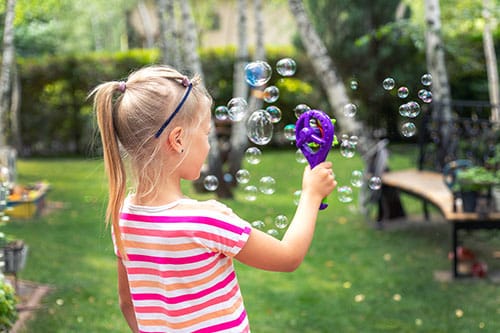
As a parent, you want the very best for your child. One of the most important things you can give them is a solid education foundation. With preschoolers spending most of their time at home, creating an effective education routine is essential to their growth and development. But where do you start?
With many resources and conflicting advice out there, it can be overwhelming. This article compiled simple tips to help you create an effective home education routine for your preschooler.
Creating a designated learning space for your preschoolers at home is necessary to foster solid educational development. Having a room, play corner, or even a pull-out table that you specifically use for their academic preschool activities will help your child understand when they are taking lessons or exploring.
Setting up these spaces has the added benefit of defining mental ‘stop’ times. It also makes drawing physical boundaries around the learning zone easy, again helping to set expectations and understanding with your little learner.
Creating education routines for children at home that complement preschool activities can benefit their development. Spending consistent time each day on preschool extracurricular activities allows children to learn how to prioritise their learning and develop skills. This way, they learn motivation, dedication, and perseverance.
When establishing this routine, take into account the prescribed school curriculum. Still, you want to ensure you have enough flexibility so that new activities or educational ideas can be explored as they become available. This structure will allow your child to participate in tools and techniques they couldn’t while at school due to time constraints and also help them stay focused and inspired during those inevitable days when concentration wanes.
An academic routine at home to supplement preschool activities can be a great way to ensure learning continues after school hours. Incorporating play-based learning activities into this routine is crucial. These types of experiences allow children to explore areas in a fun, hands-on way.
Introduce preschool games that allow children to practice numbers, literacy, and early science concepts while having fun with their peers.Likewise, free-form play such as arts and crafts or outdoor exploration will let kids use their creativity in ways that may not be possible within the walls of a classroom.
You can also have a learning-play date with your child’s classmates. This will foster socialisation and make the play-based learning experience better. With the right balance of structured, data-driven learning and creative explorations, kids can gain well-rounded abilities to develop skills for any future academic endeavour.
Reading with children strengthens their literacy and language skills, which can help them in preschool. You can also try out other activities to keep your child engaged and motivated, such as an introduction to puzzles and creative art projects.
You don’t have to limit yourself to traditional classroom activities, either. Research shows that extracurricular activities like sports and music or dance courses can help further their creativity and physical development. Put together a personalised plan of fun learning activities to supplement their preschool curriculum.
Supplementing preschool at home should include online resources focusing on developing skills. Preschoolers can use online games to practice identifying shapes, sorting, sequencing, counting, and writing.
Young children can also have fun with puzzles and connecting the dots that engage their minds and help develop fine motor skills. As a parent, you must balance teaching your child something new and ensuring that each activity remains fun.
Setting up a successful home-learning routine for young preschoolers starts by making activities fun. Engaging them in playful and interesting activities like experimenting with literacy, maths, and science will help them learn better and keep them entertained. In most cases, children are known to have a short attention span. So if you want to ensure you have them engaged while learning, make it fun.
Parents can introduce singing, art or musical enrichment to supplement the teachings of formal preschool education and further develop young minds. Such preschool extracurricular activities will help boost their enthusiasm for learning. Introduce reinforcement concepts that’d be difficult to understand without creative visualisation and role-playing.
To wrap it up, while there’s no ‘one size fits all’ solution to supplementing a preschooler’s education at home, getting creative and finding what works best for your child will pay off long term. From designating a learning space to read to your kids and finding virtual learning opportunities for growth, encouraging your preschooler’s development with personalised activities is vital.
Remember that this should be a stress-free process to fit your family’s environment. With guidance and gentle reminders, fostering an educational routine can benefit your little one’s learning and overall growth.
No Director or Team Member is selected in the "Team Members" field for this location.